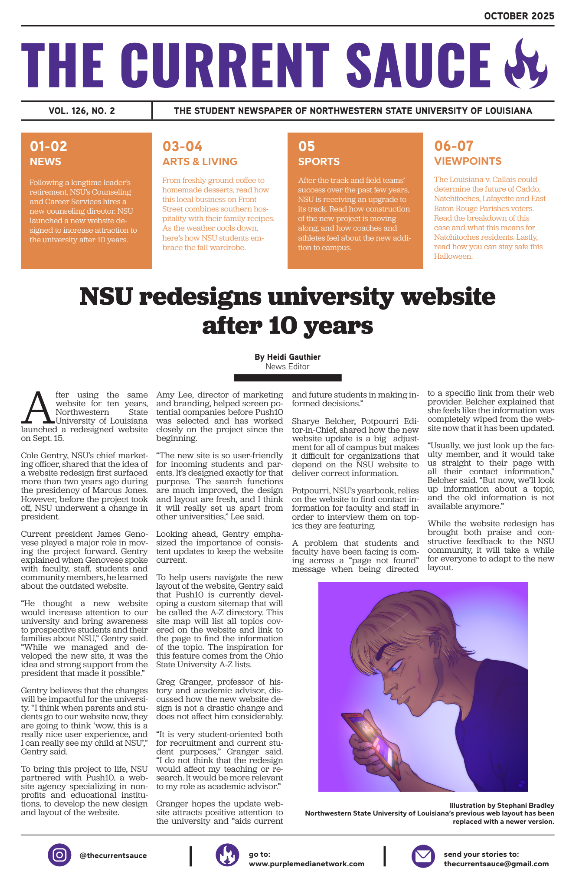Study tips to get you through finals
Studying is unavoidable, but that doesn’t mean you haven’t figured out what works best for you after all this time.
It’s a miracle you even decided to entertain me by clicking on this article, but I am honored. If the title didn’t scare you away by now, I’m sure my next words will. Finals are fast approaching, and I’m sure everyone is beyond tired of hearing about it. But if there’s one thing college students are even warier of than failing their exams, it’s studying.
By now, we are all aware of the concept of studying, with most of us being in the routine of the standard American school system for all our lives… we are all very tired of the unending routine of learning a new topic, practice, study, test and move from one to the next topic. College just continued this routine for many of us, with the added challenge of having to apply our new skills in the real world, and the expectation to land a job in our fields before graduation.
Studying is unavoidable, but that doesn’t mean you haven’t figured out what works best for you after all this time. With the trauma of puberty and the stress of high school, where so much was demanded of you, both to pass all your classes and be accepted into your school of choice all while the school system demands standardized tests. It can feel like everything we have learned up to this point did nothing to prepare us for what university requires of us.
For me, freshman year of college was akin to a culture shock. Yes, I still had written assignments and tests, but I soon found out that it wasn’t enough to simply show up and pass. For the first time in my life, I found myself eager to put out superior quality work, to catch the attention of my professors, and discover who I was as a person, and not just as a student.
So here I am, willing to give away all the tricks I have acquired in my three years of experience here at Northwestern State University. By sacrificing the mystery of my craft, I hope to help all of you break past the fear of failure and guide you on the journey of falling in love with your major, so you can enjoy homework, rather than dread it.
Number one: Show up, not just for attendance, but for routine. Having the ability to attend class and participate in the class makes a significant impact both on yourself, but also on your professors and classmates. Even if you may not think it, professors notice, and will be more willing to work with you should you ever need to approach them for any reason, whether it be to ask for extra help on a topic, or to ask for an extension on a deadline.
Your classmates also play a huge role in class. You never know when a group project will be assigned, or if you missed some notes and need to ask another for theirs. Making friends is another huge step to enjoying your classes, as well as establishing a feeling of accountability for both parties to attend class.
Number two: Know your priorities. Don’t waste time on things that aren’t due yet, or things that you have already thoroughly understood and are prepared for. Sometimes you will not have the amount of time you need to best ace everything you are assigned. Life will always get in the way, so understanding how to prioritize what is more crucial for that moment is vital to balancing your classes and life.
One of the biggest lessons I have had to learn early in my college life has been accepting the reality that I cannot always give my all to everything all the time. Both for my own mental health and for the success of other aspects of my life. Many times, I have had to plan to receive a bad grade on an assignment while actively working to ensure another project receives my full attention. While I may be able to pass the class with one bad test grade, another cannot afford those same sacrifices. I value being a jack of all trades, rather than a master of one.
Number three: Organize your responsibilities. Planning your life out detail by detail can be stressful for many, but the benefit of knowing exactly what needs to be done is always so important. Professors will never give you a fully prepared schedule of assignments and can never guarantee the ability to follow the syllabus word for word. Again, things happen, and plans change all the time, and the ability to adapt and adjust to the unexpected is a vital life skill.
Having a planner like Notion, which I have spoken of just recently in another article of mine this semester, is extremely helpful to me. Many of my professors will assign things in class, and I will have to write them down immediately or else I will entirely forget, and I am sure everyone else will struggle just the same.
Number four: Take time to learn about yourself, both in your mental and physical health and in how you function best. Understanding how you work and how you best retain information is so important in the process of studying and performing at your highest caliber. Knowing what helps you stay focused and what environments best set you up for success is the best thing you can do.
And number five: communicate. At the end of the day, you are only human and cannot be perfect all the time. You will fall behind, fail to understand or struggle with a project. Rather than avoiding the inevitable and accepting a bad grade as I have done before, communicate with your professors first to allow them an insight into your issues. It is often as simple as the professors understanding you and allowing you whatever you need to be successful.
No professor ever wants a student to fail, and many are very willing to work with their students to give them the ability to be successful no matter what. So, my final and most important advice to all of you is to thoroughly communicate with the many people trained to help you. Even if you have no excuse and believe there is no coming back from how far you may have fallen, it is always worth it to talk it through with your professor before withdrawing or dropping any class. You never know what kind of strings they will pull to help you should you express a genuine desire to pass.
Thus, my secrets are revealed, and I am now forced to follow my own advice. I wish all of you luck in surviving the last few weeks of the semester. I will be in my dark corner working furiously to submit all my many assignments on time.































